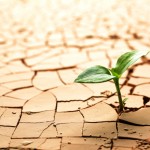 As inconceivable as it may seem, everybody (including you) is eating way too much chocolate. So much so, that we are actually running out of the stuff. For real. This is a serious matter.
As inconceivable as it may seem, everybody (including you) is eating way too much chocolate. So much so, that we are actually running out of the stuff. For real. This is a serious matter.
An article appearing on the Washington Post sparked a series of others shouting about this great calamity that is about to hit the world. Chocolate giants Mars, Inc. and Swiss-based Barry Callebaut say that, all too soon, chocolate prices will rocket to the point that the industry will become unsustainable. A bar of chocolate will become as valuable and exclusive a food as caviar, according to John Mason of the Ghana-based Nature Conservation Research Council.
So we need somebody to blame, something to vent our panic and frustrations on! Blame climate change. Or pestilence. Or world politics and economies. Or India and China's changing choice of candy. We can even blame the health industry. Regardless, the world is still running out of chocolate. But is there any hope?
Basic facts of demand and supply
- In 2013, the world consumed roughly 70,000 metric tons more cocoa than it could produce. By 2020, that is estimated to increase to a 1 million metric tons deficit, and this will double by 2030.
- Increasing world demand, along with a combination of factors reducing supply, drove cocoa prices up from 2,000 euros per tonne to more than 2,500 euros per tonne - a 25% increase in cost that, if the trend continues, may become unsustainable by chocolate-makers.
Increasing world appetite for chocolate
- An increased taste for chocolate in densely populated countries like India and China has increased demand for cocoa beans in Asia by 29 percent in 5 years.
- The emerging health benefits of raw chocolate have seen a rising popularity of dark chocolate, which contains up to seven times the amount of cocoa as milk chocolate.
- Due to the cocoa plant's requirements, it can only be grown in the narrow strip 10 degrees from the Equator.
- 70% of the world’s cocoa is produced in the Ivory Cost and Ghana, politically and economically unstable regions of the planet.
Weather and disease
- Crops of cocoa have been suffering due to a severe drought in West Africa.
- Fungal diseases like Witches' Broom and Frosty Pod have destroyed approximately 40 percent of global cocoa production crops.
Farmer profitability
- The entire chocolate industry is based entirely on back-breaking manual labour by elderly farmers on small farms who earn about 1 euro a day.
- It takes about two years for a cocoa plant to produce fruit, and about 10 years for its flavour to mature, making for slow evaluation of good strains and tedious long waits for harvest compared to more productive crops such as corn and rubber, which farmers are now preferring to opt for.
Hope
- According to Bloomberg, farmers in Costa Rica are developing new disease-resistant breeds of cacao.
Let us pray, as this may save the world (and us all) from potential chocolate disaster.
What would your world without chocolate be like? Rate and share your comments below.

























